Last Updated on August 23, 2023
Are you eating too much protein? Are you not eating enough? Find out how much protein you should be eating with my accurate protein intake calculator.
I have SO many clients come to me that aren’t eating enough protein… I have a TON that are eating way too much. Your protein intake is unique to you and is based on a lot of factors that I share below. When I first discussed bioindividuality I shared the importance of working in a way that’s right for you.
Getting the right amounts of dietary is necessary to get fit and healthy. And the amount of protein you need is unique to you.
This Protein Intake Calculator estimates the daily amount of dietary protein required to maximize the benefits for health, metabolism, and weight loss.
Use this accurate protein intake calculator to find out how much protein is right for you and keep reading!
Protein Intake Calculator
Sex
Height
Weight
Goal
Current Activity Level
Children, those who are highly physically active, and pregnant and nursing women typically require more protein compared to sedentary adults. Ask your doctor to find out how much protein you need if you’re pregnant or breastfeeding. This protein intake calculator can also be used to monitor protein intake for those with kidney or liver disease, diabetes, or other conditions in which protein intake is affected. No content on this site should ever be used as a substitute for direct medical advice from your doctor.
Benefits of getting your Daily Protein intake
Getting adequate protein intake is beneficial in a lot of important ways, including:
- Building and repairing tissues – Protein is essential for building and repairing tissues such as muscles, bones, skin, and hair
- Maintaining muscle mass – Consuming enough protein helps to preserve muscle mass and prevent muscle loss, particularly as people age
- Supporting metabolism – Protein has a high thermogenic effect, meaning that it requires more energy to digest compared to carbohydrates or fat. This helps to boost metabolism and support weight management
- Regulating hormones and enzymes – Proteins play a crucial role in the production of hormones and enzymes, which regulate various physiological processes
- Improving satiety – Protein is more satiating compared to carbohydrates or fat, which means it can help to control hunger and reduce overall calorie intake
- Strengthening the immune system – Proteins are key components of the immune system, and adequate protein intake helps to keep the immune system strong and functioning properly
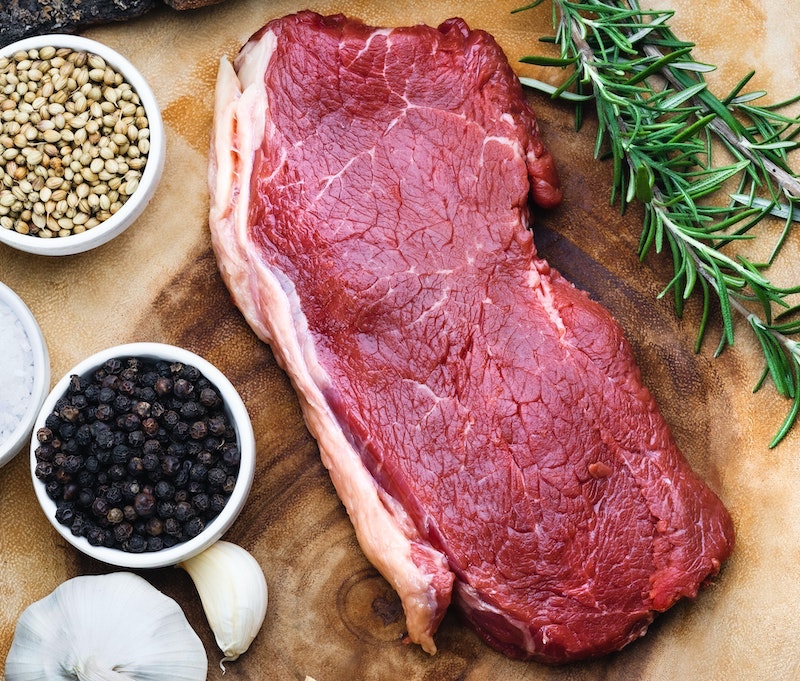
SYMPTOMS OF OVER/UNDEREATING PROTEIN
You can experience a lot of nasty, completely unavoidable symptoms when you’re not eating the right amount of protein. Dietary protein is the major structural component of all cells (including bone cells) in the body. So it makes sense that if you’re not eating enough or having too much you can experience issues.
Symptoms of not getting enough protein include:
- Fatigue – Under consuming protein is a primary cause of fatigue
- Weakness
- Muscle loss or wasting
- Bone loss, calcium absorption issues, and osteoporosis
- Slow wound healing
- Hair loss
- Dry skin
- Premature aging
- Depression
- Brittle nails
- Cravings for non-nutritious foods
- Decreased immune function
- Hormonal imbalances
Consuming too much protein can cause symptoms, including:
- Gastrointestinal problems – Nausea, bloating, gas, constipation, and diarrhea are all common with high-protein diets
- Kidney problems – Long-term high protein intake stresses the kidneys and may lead to kidney damage
- Calcium loss – Diets high in acid-ash protein can cause excessive urinary calcium loss because of its acid content, which can increase the risk of osteoporosis
- Liver problems – In rare cases, high protein intake can cause liver dysfunction
And that’s just health…
Eating too much or too little protein can affect your weight, too.
- Too much protein: Consuming more protein than the body needs can lead to weight gain. If the excess protein is not burned off through physical activity, it can be stored as fat. Additionally, high-protein diets can also be high in calories, which can further contribute to weight gain. If you’re exercising more while eating too much protein, gains in muscle mass are common, leading to weight gain and bulking. I see this a lot in my clients that train & diet with their husbands and are frustrated that they’re gaining weight…
- Not enough protein: Consuming too little protein can lead to muscle loss and decreased metabolism, which can make it harder to maintain a healthy weight. Low protein diets can also cause cravings for high calorie, low nutrient foods, which contributes to weight gain and further slows metabolism and can affect motivation and energy.
As with all other macro and micro nutrients, it’s important to have a balanced diet that includes enough (but not too much) protein.
Eating the right amount of protein can have a positive impact on weight and metabolism. Protein has a high thermic effect, meaning that the body burns more calories to digest protein than it does for carbohydrates or fat. So it’s definitely great for health and weight loss… assuming you’re getting the right amount of the right sources.
We’ve already established the right amount with the protein intake calculator… so what are the best sources?

What are proteins?
Proteins are a vital macronutrient that play very important roles in the human body, alongside fats and carbohydrates. Protein is essential for life – it’s a building block of every human cell and is require for vital biochemical functions in the body. It’s particularly important in growth, development, and tissue repair. Proteins can be grouped based on their role in the body.
Some common types of proteins include:
- Antibodies, they defend the body against foreign invaders such as viruses and bacteria by attaching to them
- Enzymes, which facilitate the formation of new molecules and chemical reactions throughout the body
- Messenger proteins, that transmit signals to regulate body processes
- Structural proteins, that serve as building blocks for cells and allow for movement
- Transport/storage proteins, which help move molecules within the body
Proteins are made up of different combinations of amino acids – there are 20 different amino acids. Some amino acids can be synthesized in the body, BUT there are 9 amino acids that can only be obtained from dietary sources which are called essential amino acids. They’re essential because you have to eat them… insufficient amounts in the diet can sometimes result in death.
Complete proteins contain all 9 essential amino acids in the right proportions to meet the body’s needs.
No single food source contains all 20 amino acids in the right proportions to meet the body’s required needs. That’s why it’s important to consume a variety of different animal and plant food sources to ensure adequate intake of all the essential and non-essential amino acids.
Animal-based sources of protein like meat, poultry, fish, dairy products, and eggs are considered complete proteins as they contain all 9 essential amino acids. Some plant-based foods, such as soy products, quinoa, and mycoprotein, are also complete proteins.
For those following a plant-based diet, it’s recommended to consume a variety of different plant-based protein sources throughout the day to ensure adequate intake of all essential and non-essential amino acids. Some examples of plant-based protein sources include legumes, nuts and seeds, whole grains, beans, and vegetables.
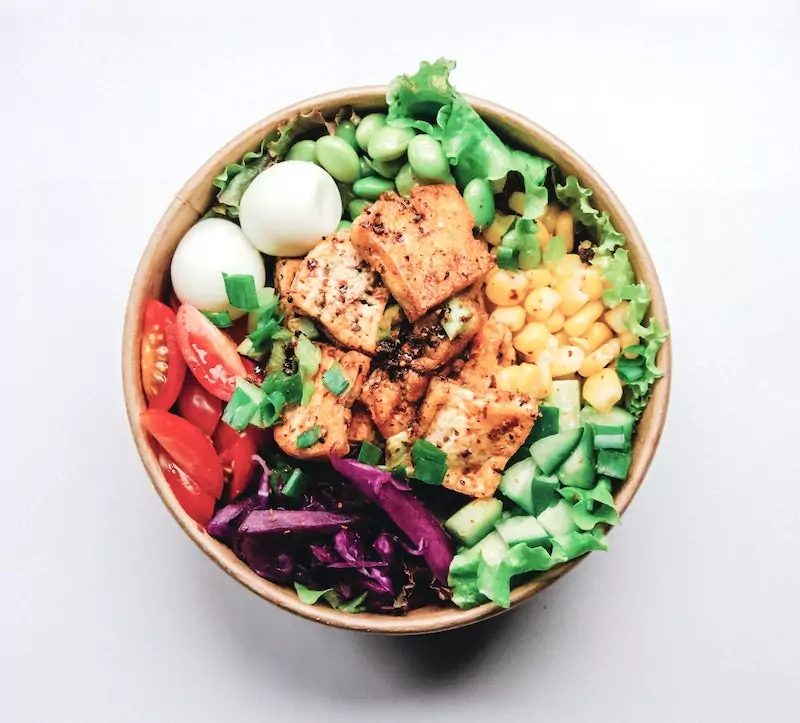
What Factors determine your Daily Protein Intake
Protein intake is often estimated based on body weight, as a percentage of total caloric intake (10-35%), or based on age alone. 0.8g/kg of body weight is a commonly cited recommended dietary allowance (RDA).
This value is the bare minimum recommended value to maintain basic nutritional requirements to prevent health issues. But consuming more protein, up to a certain point, may be beneficial, depending on the sources of the protein.
The recommended range of protein intake is between 0.8 g/kg and 1.8 g/kg of body weight, dependent on several factors that can affect how much protein you need to eat daily, including:
- Age: Protein needs are higher in children and teenagers, as they are undergoing growth and development, and decrease as we age.
- Gender: Men tend to have higher protein needs than women due to differences in body composition and muscle mass.
- Size: Larger individuals generally need more protein than smaller individuals, as they have more body mass to maintain.
- Activity Level: Athletes, bodybuilders, and people with physically demanding jobs may have higher protein needs due to increased muscle mass and activity levels.
- Health status: People who are recovering from injury or illness may require more protein to aid in tissue repair.
- Pregnancy and breastfeeding: Women who are pregnant or breastfeeding may have higher protein needs to support the growth and development of the fetus or newborn.
- Lifestyle: Vegetarians and vegans may require more protein as they rely on plant-based sources that are often less bioavailable. It’s difficult to get all of the protein you need exclusively from plant sources alone… possible but difficult. And they don’t absorb into the body as well as animal proteins do. It’s also difficult to get the needed amount of proteins from plants while also maintaining a calorie deficit… this can make it difficult to lose weight, FYI.
People who are highly active, or who wish to build more muscle should generally consume more protein. Some sources suggest consuming between 1.8 to 2 g/kg for those who are highly active.
But a cookie-cutter answer isn’t helpful… and in a lot of cases, the recommended amounts are either too much or too little. That’s where my protein intake calculator comes in…
In addition to getting enough proteins, it’s important to get the right sources of protein.
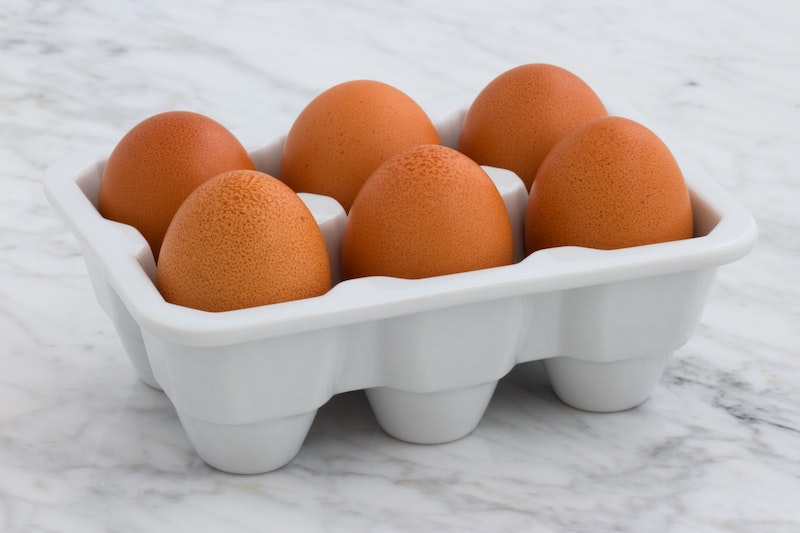
Foods High in Protein
Meeting your protein intake needs can be done with a variety of sources. Meat and dairy are common sources, but there are also plant-based options, too.
However, too much of either can have negative health effects. It’s best to meet your daily protein intake requirements by balancing meat, dairy, and plant-based foods in your diet.
Complete proteins are the most important sources. These are proteins that contain all nine essential amino acids required via the diet because the body cannot synthesize them. Some of the best sources of complete proteins include:
- Animal proteins:
- Meat, poultry, and fish
- Dairy products such as milk, cheese, and yogurt
- Eggs
- Plant proteins:
- Soy products like tofu and tempeh
- Quinoa
- Buckwheat
- Chia seeds
- Hemp seeds
- Mycoprotein (found in products such as Quorn)
Typically, animal-based foods such as meat, poultry, fish, eggs, and dairy are complete protein sources, meaning they contain all the essential amino acids needed in the human diet. On the other hand, plant-based foods such as nuts, seeds, legumes, grains, and vegetables are often considered incomplete proteins.
This doesn’t mean that they’re not nutritious or healthy, but they have to be consumed with others to ensure all essential amino acids are accounted for. I do not recommend synthesized ‘fake’ plant substitutes either… Real food is always best.
How much protein do you need?
Let me know in the comments.
Your Coach & Biggest Cheerleader,
![]()
P.S. If you need help getting more protein into your diet this is the best protein powder I use, love, and recommend. It has 20 grams of protein per serving & also has the nutrition of 24 servings of fruits and veggies for minimal calories. It’s seriously the best protein powder out there.
You may also like:
Pin this to Pinterest so you’ll have it forever
SOURCES:
https://pubmed.ncbi.nlm.nih.gov/26797090/
https://pubmed.ncbi.nlm.nih.gov/25926511/
https://pubmed.ncbi.nlm.nih.gov/26197807/
https://www.ncbi.nlm.nih.gov/pmc/articles/PMC5872778/
https://www.ncbi.nlm.nih.gov/pmc/articles/PMC6566799/
https://www.ncbi.nlm.nih.gov/pmc/articles/PMC6140426/
https://pubmed.ncbi.nlm.nih.gov/33183359/
https://pubmed.ncbi.nlm.nih.gov/16779921/


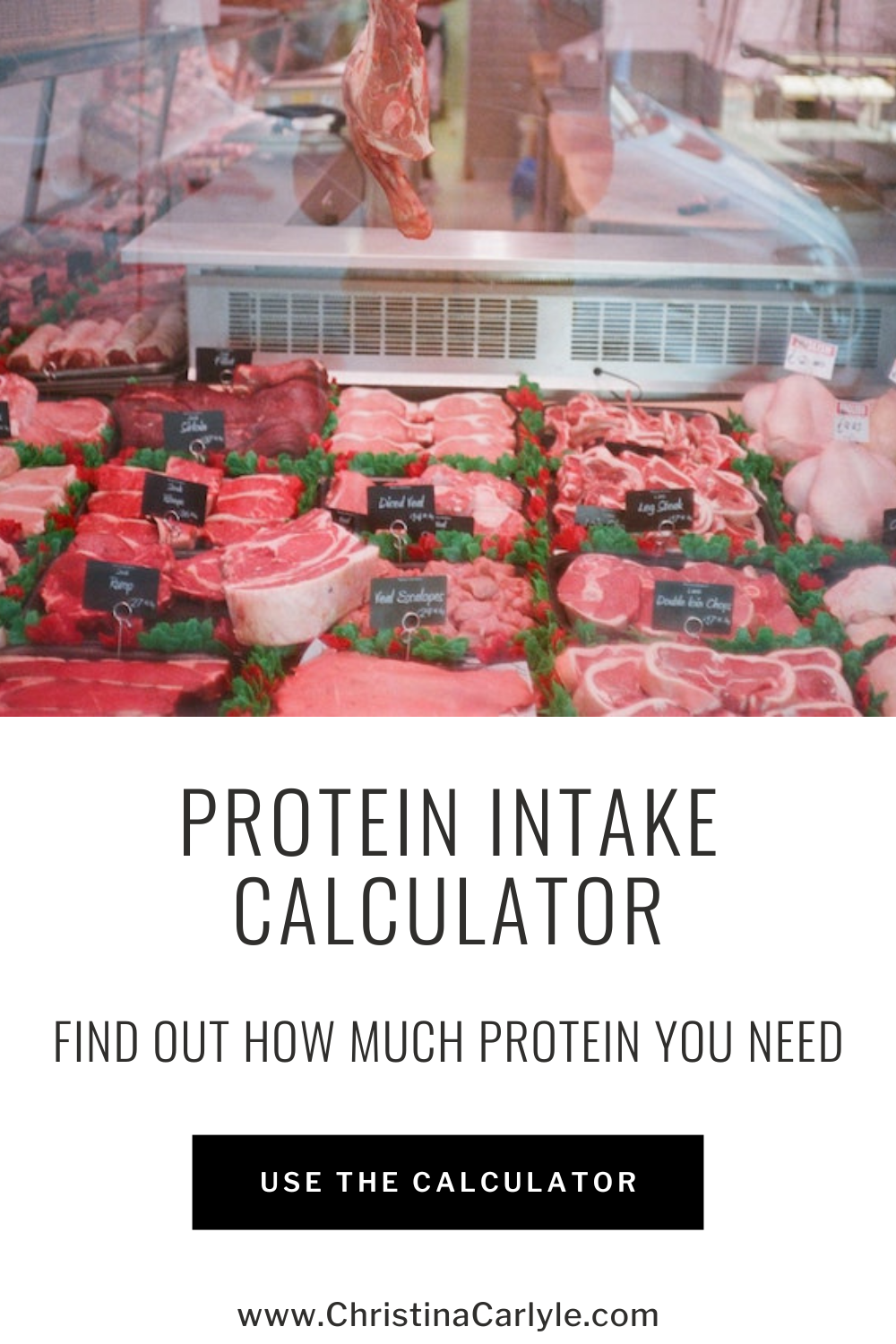



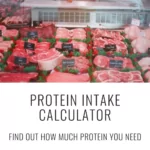
166 grams! Glad I started drinking protein shakes.
Yes! they’re an awesome way to get the protein you need. Here’s a link to a deep dive I did on proteins so you can choose the one that best matches your goals. https://www.christinacarlyle.com/best-protein-powder-weight-loss/
According to the calculator, I’m supposed to be getting 185g per day. I had been trying to hit 83g per day on a 1650 cal diet (and hopefully lowering the calorie goal incrementally over a few months). How can I possibly get 185g of protein a day – without heavily relying on powders or other manufactured food? Or maybe I can’t. I’m just sitting here in disbelief at 185g.
a few things to consider… this calculator is goal/results-oriented and is accurate. The number of calories you’re eating may not be enough for your goal look. Most calorie calculations are based on weight… but muscle is needed to burn fat and get/look tone. So you can burn fat and build muscle and not have weight change. You don’t want to lose weight. You want to lose fat. You have to build muscle to do that. You need protein to make it happen. Undereating calories and only considering goal weight – and not body fat composition (losing fat and building muscle) is very common and the reason most people don’t see their body change.. it’s also why people get smaller but never tone. That approach (weight loss) also slows the metabolism and sets you up for rapid regain in the process.
also protein powders are a great way to get the protein you need. not all powders are good though. This post explains more. I know it says weight loss which is what I said to avoid… but that’s the keyword people search when in reality it should be (and I meant) fat loss.
https://www.christinacarlyle.com/best-protein-powder-weight-loss/
Thanks so much for the feedback! When I sat with it a bit after posting, I could see how I could easily up my protein a bit – and I’ll check out the protein powders you recommend. I’m at the weight I’m at now because I didn’t stay on top of maintaining muscles & caring for my health. I really appreciate (and trust) all of the information you offer! Thanks again!
I’m glad you found this helpful. There are tons of sneaky ways to boost protein without overdoing the calories. Powders are one of many. Luckily they’ll help you bounce back and get where you want to be. 🙂 Let me know if you ever need any tips. Forever rooting for you – CC